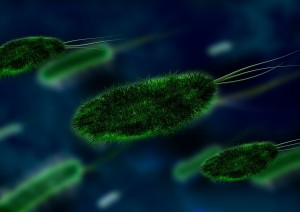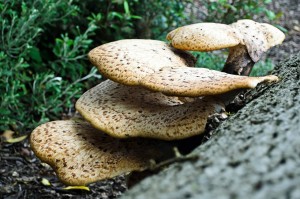Probiotics are widely used today in aquaculture. What are they? How do you obtain them? Do they really work? This article will discuss several aspects of probiotic use in aquaculture.
We usually think of germs as something that causes disease. However, germs can be both, good and bad. Probiotics are the good guys. They are living microbes or germs that benefit aquaculture in many different ways.
Probiotics are widely used in aquaculture to control bacterial infections and improve water quality. Evidence also shows that probiotics can improve digestive system functions, encourage reproduction, and increase tolerance to stress.
Currently, there are several commercially produced probiotics available, made from several different species of beneficial bacteria, that do not cost much.
Benefits of Probiotics
Probiotic use in shrimp farms, or even in other types of aquaculture, is gaining popularity because they have been proven to be beneficial for aquaculture fish. Use of antibiotics, antimicrobial drugs, pesticides and disinfectants in aquaculture has made germs evolve and become stronger and resistant. Antibiotics and pesticides have also killed some of the naturally occurring beneficial bacteria in the fish culture, and so there is an increasing need for probiotics in environmentally friendly, sustainable aquaculture.
Probiotics for gut health
They have been proven beneficial in disease prevention by modifying the microbial community in the host body. These microbes help in establishing a healthy gut, improving digestion, and ensuring efficient use of feed.
Probiotics for intestinal health
To maintain proper intestinal health, it’s critical to manage intestinal microflora for the growth and health of the animal, since the microflora has impacts on:
- nutrition
- prevention of pathogenic infections
- integrity and function of digestive organs
- development of the immune system
Probiotics are also known to fight colonization of other microbes that tries to inhabit the same area and thus reduces the chances of being attacked by other germs. They also enhance the immune system and fights diseases naturally.
(Source: Probiotics In Aquaculture: Do They Work? – The Fish Site)
Safety Regulations
As with any supplement, safety procedures and recommended dosage must be followed. Also be cautious while selecting your products, in application, and storage. If you follow all instructions by the producers, you should be able to add these probiotics easily to the feed of your fish or to your aquaponic systems. In addition, take extra care to make sure that the probiotics have adequate conditions for growth and their ability to colonize the gut of the aquatic animals.
I hope this article was helpful for you. Want to unleash the entrepreneur in you? We show you how. Click here to download our FREE eBook!
To learn more about fish farming or to get a hold of us, call: 303-495-3705 or click here to book a meeting. We’d love to hear from you so, please add your comments below or visit our Facebook page.
Source: WorldWide Aquaculture
Related articles and resources:
- Probiotics for Autism
- Freshwater Shrimp Farming- Managing Water Quality & Disease | WorldWide Aquaculture
- Freshwater Shrimp Farming – How to Start Your Own Shrimp Farm | WorldWide Aquaculture
- Use of Probiotics in Aquaculture
- Probiotic toxin fights coldwater disease in rainbow trout – WSU News Washington State University
- Probiotics in aquaculture
- Probiotics In Aquaculture: Do They Work? – The Fish Site
- What Are Probiotics? Benefits, Supplements, Foods, & More
- Costs of Probiotics in Shrimp Farming – KeetonAqua




I have researched the use of probiotics versus antibiotics in aquaculture and have come to a similar conclusion: probiotics can be recommended for environmentally friendly and sustainable aquaculture. However, I have found some additional information that I would like to share that you may have left out of your blog post because of its brevity. Specifically, I compared research on probiotics and antibiotics to evaluate each approach by its effect on the health of the fish, the health of the consumer and the effect on the environment.
The literature supports your statement that probiotics improve digestive system functions of aquaculture populations; I have also found that “probiotic strains synthesize extracellular enzymes such as proteases, amylases, and lipases as well as provide growth factors such as vitamins, fatty acids, and amino acids” which ultimately can improve the digestive process of farmed fish. However, in my research I did not find articles that discussed how probiotics “encourage reproduction and increase tolerance to stress.” I would be interested to learn more about this. I did find a lot of research on competitive exclusion, which you briefly mention but do not name directly. Exclusionary behavior is when probiotics compete with pathogens within fish for nutrients, space and oxygen to help prevent disease. Probiotics can thus prevent or reduce colonization of pathogenic bacteria on the intestine site by “crowding out” bacteria. Also relating to fish health, the use of antibiotics in aquaculture as you pointed out “made germs evolve and become stronger and resistant.” Antibiotic resistance is indeed a huge problem for aquaculture and is only getting worse. When a fish is given an antibiotic to prevent against one disease, the antibiotic might work to fight against that disease but then that pathogen may mutate to become resistant. Antibiotics cause harmful long term effects while probiotics have been shown to not promote mutation or future ineffectiveness. Of course, antibiotics are employed to treat disease and there remain some diseases that only respond to antibiotics. Consequently, aquaculturists still use antibiotics to treat these affected fish. However, when comparing both antibiotics’ and probiotics’ overall benefits to fish health, probiotics are much better in most circumstances as a long term solution.
Your blog mainly focused on the health of fish when given probiotics but I have also looked into the health of the consumer of the antibiotic-fed fish. I think that whatever disease treatment method aquaculturists use, ultimately, it must be safe for the consumer eating the fish. Research of probiotics in the food industry has not found them to have any human health risks. The research I have found states that probiotics have not shown to cause any harm to humans. On the other hand, antibiotic resistance to human pathogens caused by human consumption of antibiotic-fed farmed fish has been found to create risks to public health.
Finally, we should consider the effect of probiotics on the environment. I found that probiotics could help improve water quality because they promote the formation of gram-positive bacteria. Gram-positive bacteria has the potential to improve water quality because they are “better converters of organic matter back to CO2 that [sic] gram-negative bacteria.” Furthermore, antibiotic residue has been found to leak from the aquaculture cages and into the wild environment. Excess food and feces floats from the aquaculture cages and can infect wild organisms.
Overall, I agree that probiotics are needed for environmentally friendly, sustainable aquaculture. I think there are more reasons that are not explicitly stated in your article that would create an even more compelling argument for the beneficial effects of probiotics. Methods to treat and prevent disease among aquaculture are vital for a future full of healthy farmed fish.